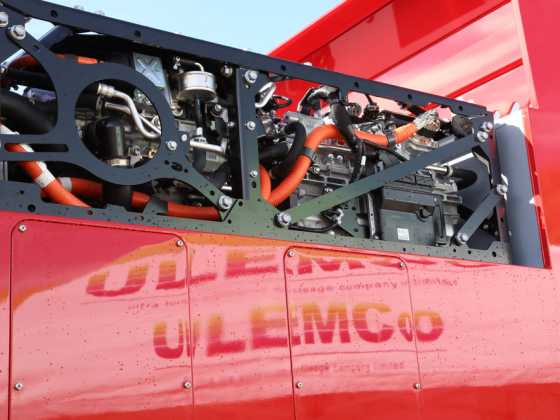The need for a logistics road-map to net-zero

Logistics UK is calling for a logistics road map to net zero and the phase out of fossil fuels, which is based on the availability of technology, infrastructure investment, regulatory reform and tax incentives. Michelle Gardner, deputy policy director at Logistics UK, explains more
Much has been discussed about the UK’s need to transition to a Net Zero future. As a sector, logistics has been consistent in the industry’s commitment to decarbonise for some time now, but it is clear that this transition can not happen without the support of policymakers at a local and national level.
As part of our manifesto which is being sent to representatives of all major political parties ahead of the General and local elections which are to take place later this year, our members – businesses of all sizes which represent all modes of transportation, as well as the buyers of logistics services – have collated their key asks which will help the smooth passage to a green economy.
Logistics is one of the UK’s largest economic sectors, playing a key role in driving growth across all the home nations. All goods and products delivered to UK households, businesses and public services, imported and exported, are moved by logistics operators – our role is vital to the success of the UK’s economy. But at the same time, it is incumbent on our sector to strive continually for efficiency, while reducing emissions.
To make the most of the opportunities available to our industry, while ensuring a smooth and fair transition to a green economy, our members are calling on policymakers to ensure that the change is fair to all. We are calling on all parties for an agreed logistics road map to net zero and the phase out of fossil fuels, which is based on the availability of technology, infrastructure investment, regulatory reform and tax incentives.
Such a roadmap, our members believe, will require a public-private partnership to unlock investment and enable our sector to maximise the benefit it can deliver to the economy. We need a more efficient system to ensure goods are delivered with minimal delays – the UK’s deteriorating infrastructure quality and increased border friction has reduced the country’s productivity and increasing delays, which in turn increase costs and emissions.
The government’s 2022 Future of Freight plan commits it to working with the sector to develop a National Freight Network (NFN) which would enable goods to be moved in the optimum productive, strategic and green manner. It would also open up the use of other modal options, including rail and water freight where it is efficient to do so. This would reduce congestion and carbon emissions, while boosting trade by improved connectivity between modes and add resilience to the overall logistics system and economy as a whole.
Traffic congestion cost the UK economy £9.5 billion in delays in 2022, as well as increasing emissions from stationary vehicles. As part of our manifesto, Logistics UK is urging a focus on maintenance and investment to improve goods movements right across the transport network.
Logistics is known as an enterprising, innovative industry and, as part of our manifesto for 2024, we are urging decision makers to work with logistics businesses, SME innovators and investors to identify ways that technologies such as robotics and AI can be used to reduce emissions and make the passage of goods from source to customer as efficient as possible. Our members are committed to achieving a greener future for all, which will unlock productivity and improve economic performance.
A copy of the Logistics UK 2024 Manifesto can be downloaded here: https://logistics.org.uk/research-hub/policies/logistics-uk-2024-manife…






